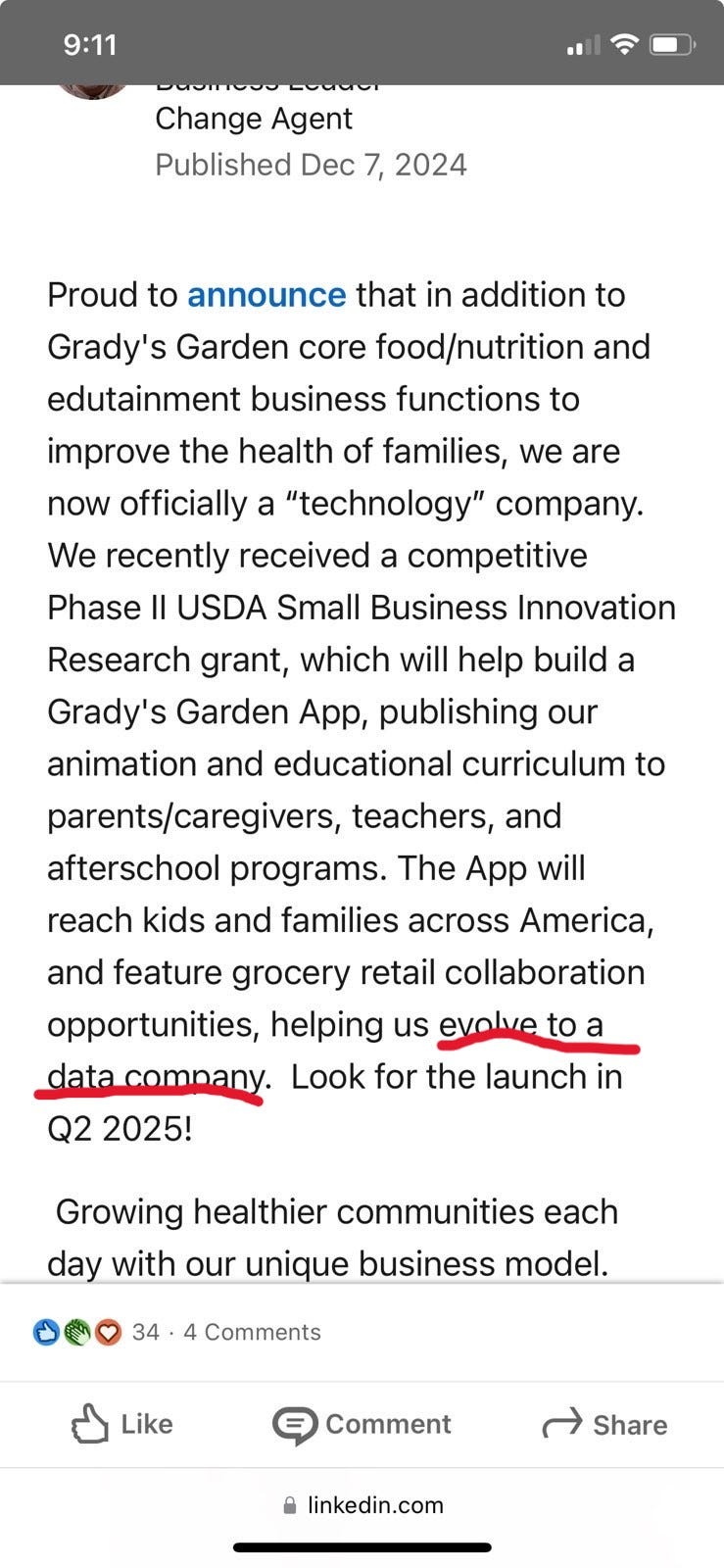In December 2024, incoming Grand Haven Area Public School (GHAPS) board member Cyndi Casemier recommended listening to a podcast featuring Michael Wheeler, representing the local non-profit Grady’s Classroom which is “helping teach parents and kids how to eat with more nutritional foods.”
In the podcast, co-founder Michael Wheeler explained that his company, Grady’s Garden, sells pasta sauces and salsas that contain no artificial flavors, colors, or added sugar, in local grocery stores. He also runs an affiliated non-profit, Grady’s Classroom, formally known as The Self-Esteem Project, which has developed curriculum that is being used in second and third grade classrooms to encourage children to eat vegetables. The host of the Positivity in Practice podcast, Meghan Reece Heritage, described the endeavor as, “it’s a little bit of a movement. It’s certainly a business. It’s a non-profit, but it’s also expanding our horizons into how we can do good things, make money, be sustainable, and have healthy kids.”
In recent months, the election of Donald Trump and his announcement to appoint Robert F Kennedy, Jr. as Secretary of Health and Human Services has brought some much-needed attention to the dangers of added chemicals hidden in the food we consume. In a short video, RFK introduced the nation to the food dye Tartrazine (yellow #5). In the video RFK explained that yellow #5 is made from left-over sludge resulting from the process of turning coal into coke for blast furnaces. Yellow #5 causes tumors, asthma, developmental delays, neurological damage, ADD/ADHD, hormone disruption and other illnesses, and is restricted or banned in other countries. According to RFK, yellow #5 can be found in Doritos, Cheez-its, Cap’n Crunch, Gummi Bears, popcorn, mac and cheese, sport’s drinks, chicken broth, corn, and yogurt.
While I greatly favor reducing harmful chemicals in our food supply, and teaching children to eat healthy, to me the Grady’s initiative feels like another government/big-money backed initiative, likely with a hidden agenda, that ultimately provides much greater benefits to the financially invested stakeholders than to the children and families it purports to assist.
According to Wheeler, “the fulcrum of the curriculum is an animation show called Grady’s Garden, which is the name of the company. It chronicles the lives of six kids of color who decide to create an urban garden. We marry that animation content with educational modules on social emotional learning, general nutrition, and gardening.”
We now know that Social and Emotional Learning (SEL) uses the results of data collection to manipulate student emotions to induce certain societal behaviors, thereby shaping the way children see the world. Restore Ottawa has written extensively about SEL including a recent article explaining how SEL places great emphasis on the collective over the individual and creates a path to usher in a neo-Marxist/collectivist form of government.
According to the Grady Classrooms website, “Grady’s Classroom has partnered with Kent School Services Network:
In the excerpt above, note that the comment is made by someone whose title is community school coordinator. Community Schools are a tool for transforming American schools to be the focal point of a collectivist vision. Restore Ottawa has also written extensively about the Ottawa Community School Network (OCSN) which follows the Community School Playbook. The Kent School Services Network also follows this model.
Co-founder of Grady’s Garden and Grady’s Classroom, Michael Wheeler, has a law degree and was an assistant public defender for juvenile court before adventuring into brand management, before retiring during COVID. The other co-founder, Chad Miller, is a senior vice president of business development at Zeta Global, an “Artificial Intelligence Powered Marketing Cloud that leverages advanced artificial intelligence (AI) and trillions of consumer signals to make it easier for marketers to acquire, grow, and retain customers more efficiently.”
In less than three years;
Grady’s Garden products are found in nearly 500 stores in Iowa, Indiana, Illinois, and Michigan.
Grady’s Classroom has eight educational modules so it can be taught throughout the year and has reached over 2000 children primarily in Grand Rapids, Lansing, and Detroit, but also some in Idaho.
Grady’s Classroom has been picked up by a PBS affiliate and has received approval for 13 episodes
During the interview, appearing both surprised and thankful, Wheeler mentioned a recent donation. (7:40) “We have this foundation out of the Ozarks in Missouri that has generously donated a sizable amount of money to help us build gardens across America. That just came out of the blue.”
Additionally, Grady’s Garden has received a Phase II USDA Small Business Innovation Research grant that will help them “evolve to a data company.”
So, wrapped up in this sprawling initiative we have marketing, artificial intelligence, school children, Social and Emotional Learning, community schools, grants, big donors, and big data! In my opinion, something is not right here. When everyday Americans want to enter the food industry, they find it difficult to even sell their products at farmer's markets due to regulations such as producing products in a "certified kitchen." Why is this initiative getting such attention? Do we really need a national corporation to teach our children how to eat their vegetables? What is the true goal?





